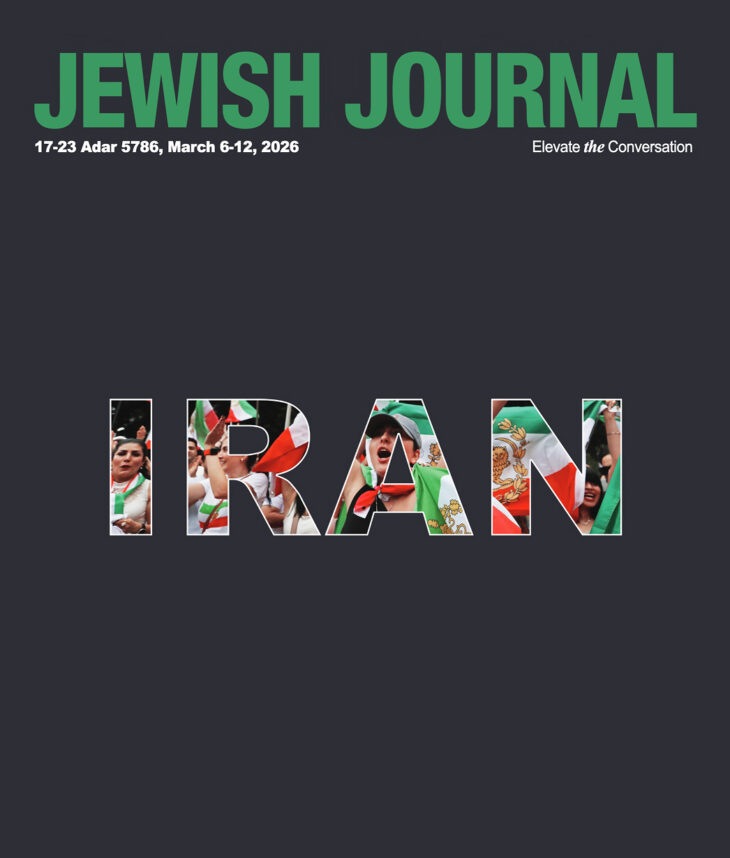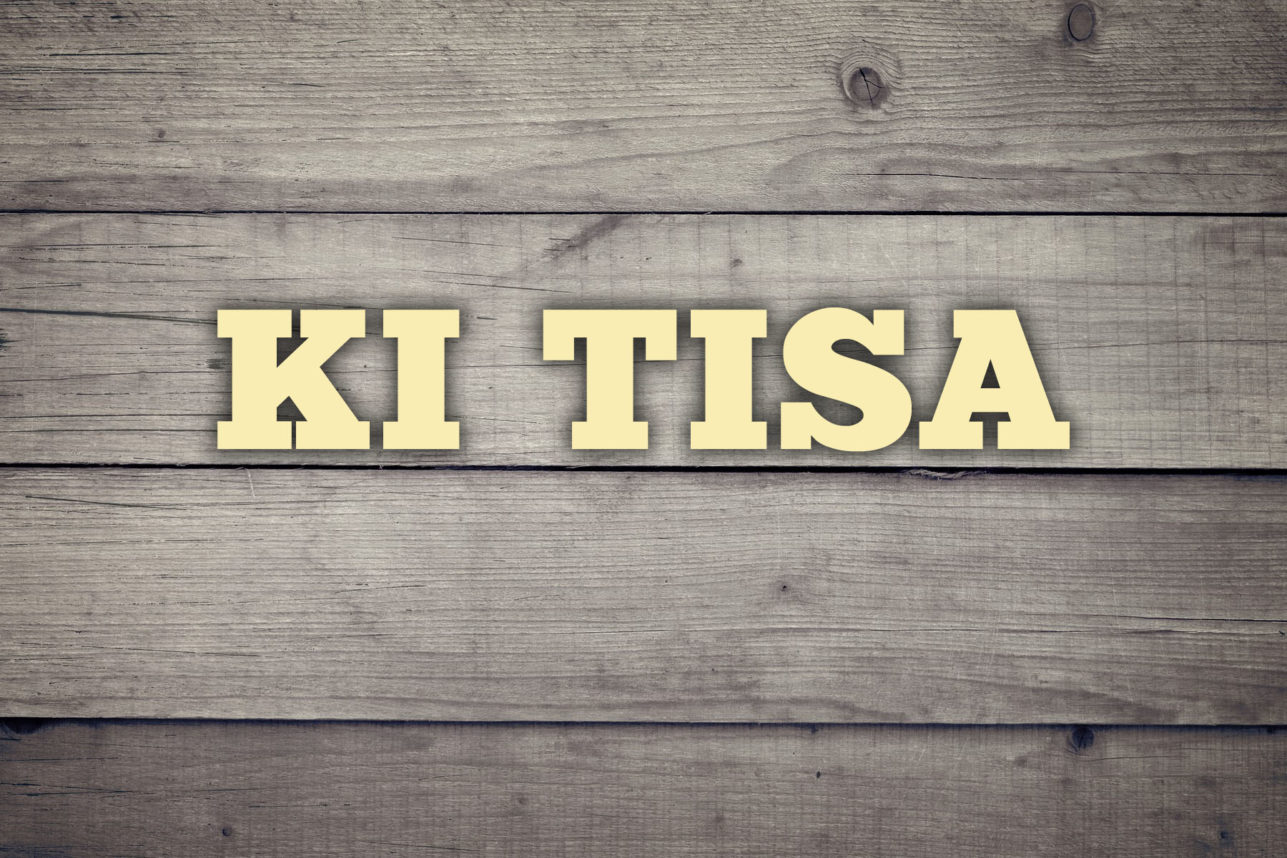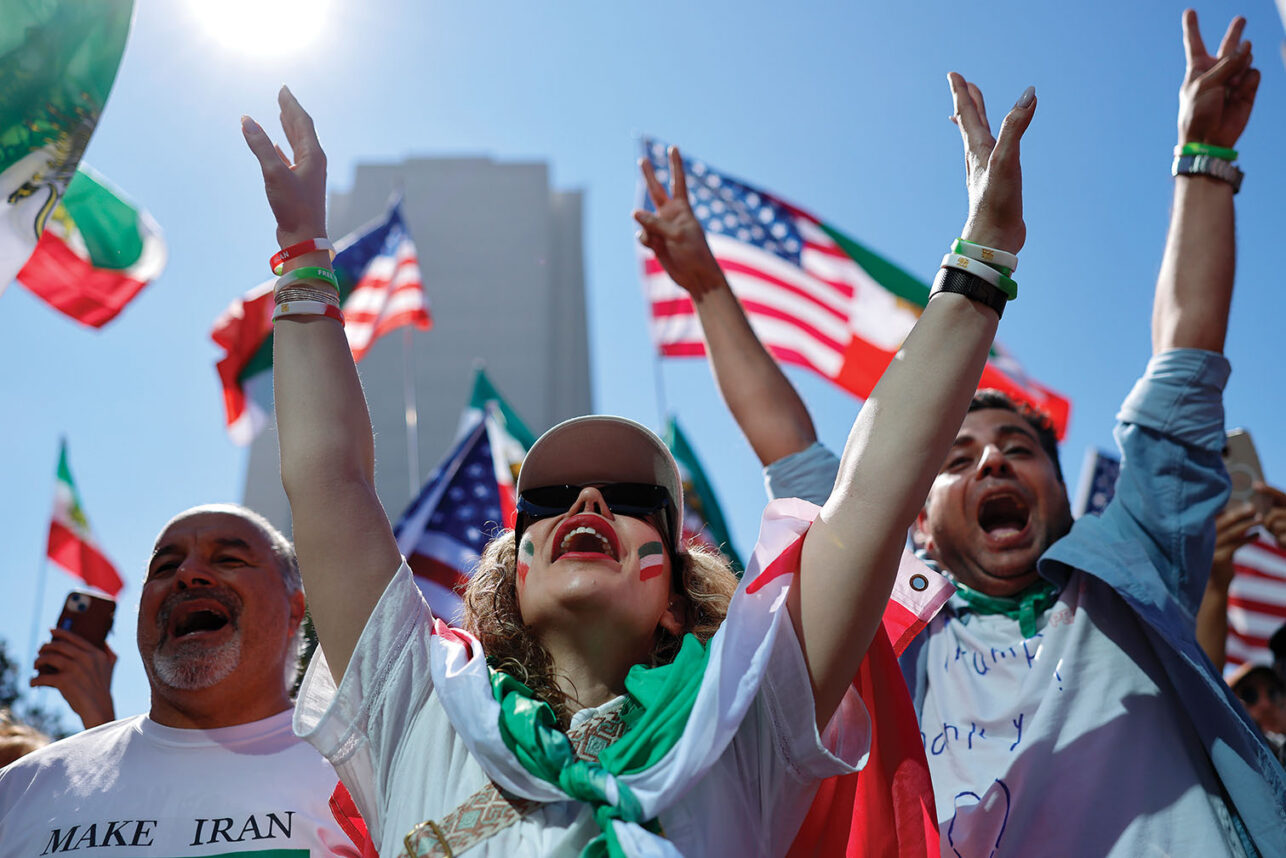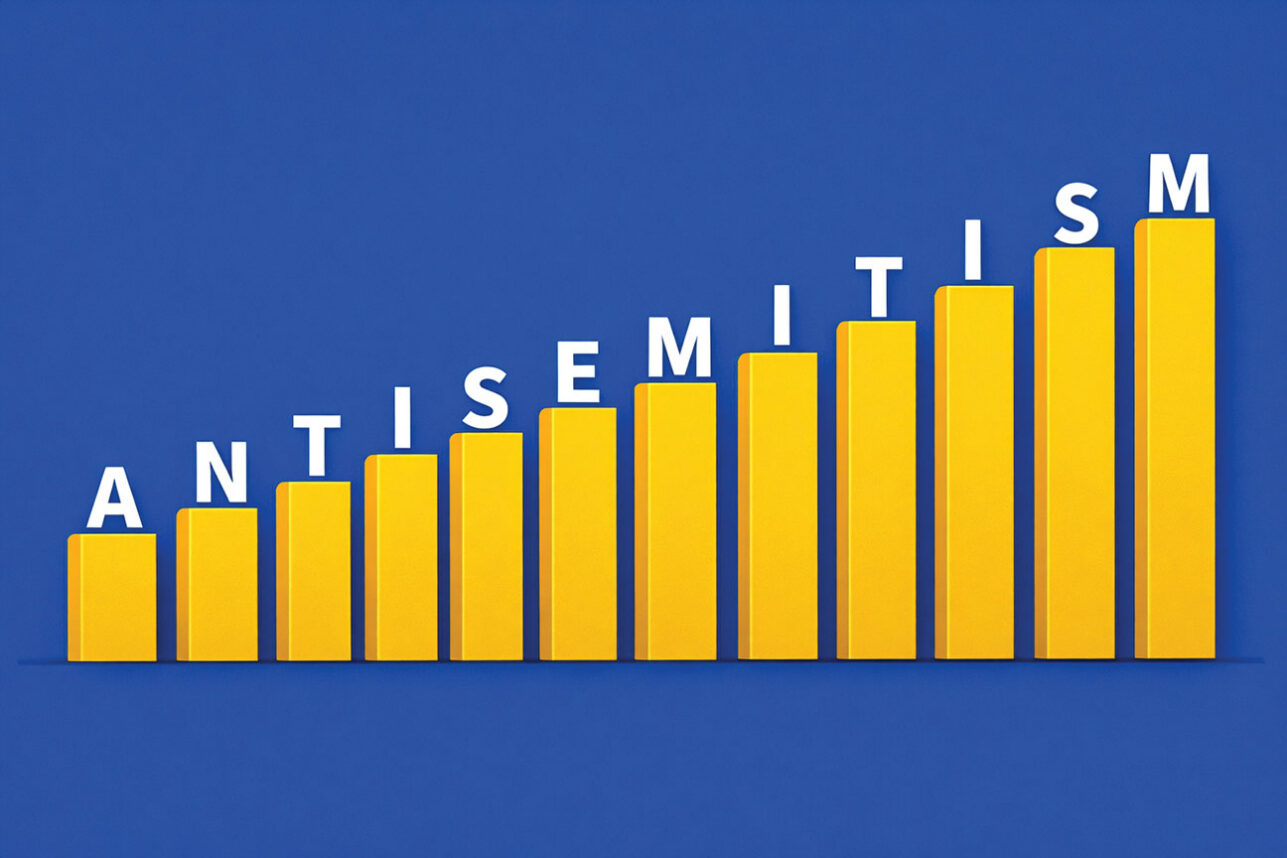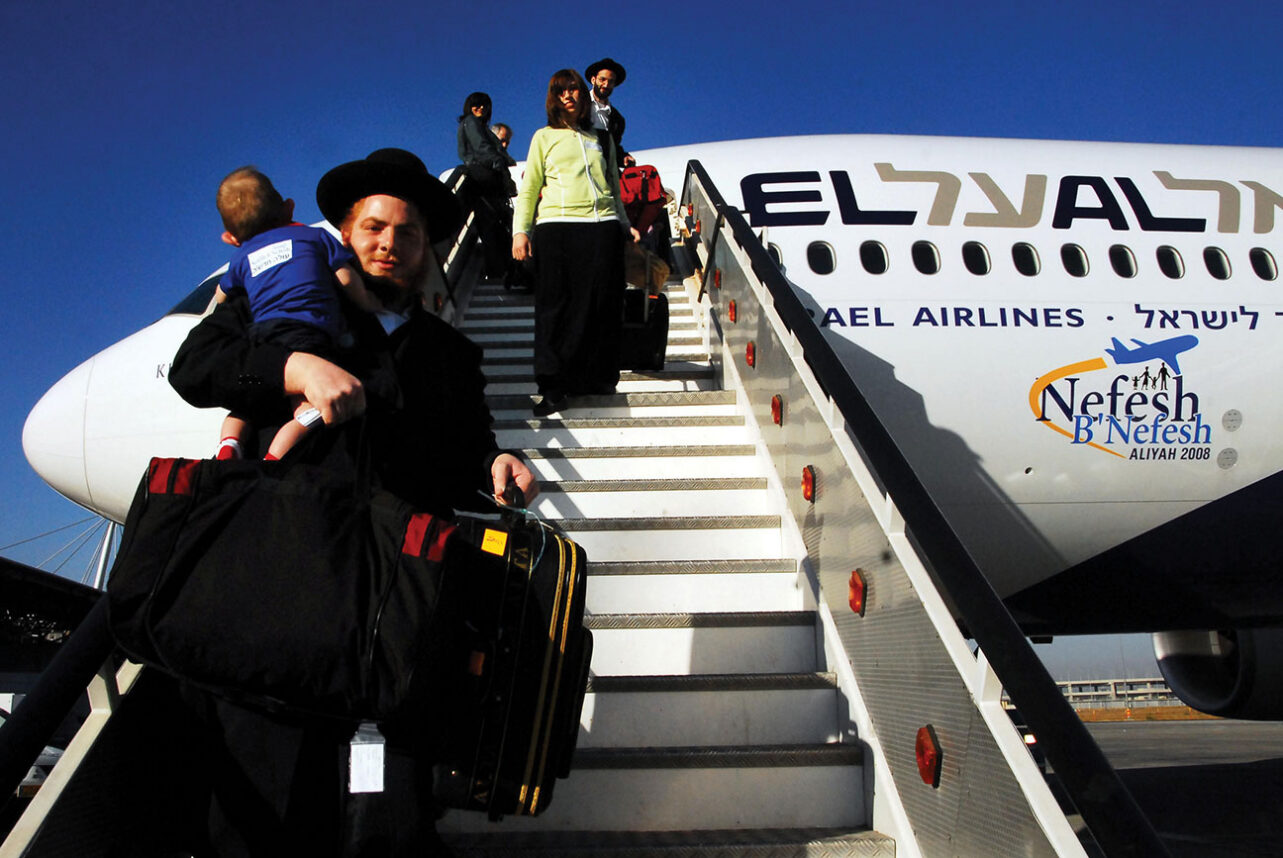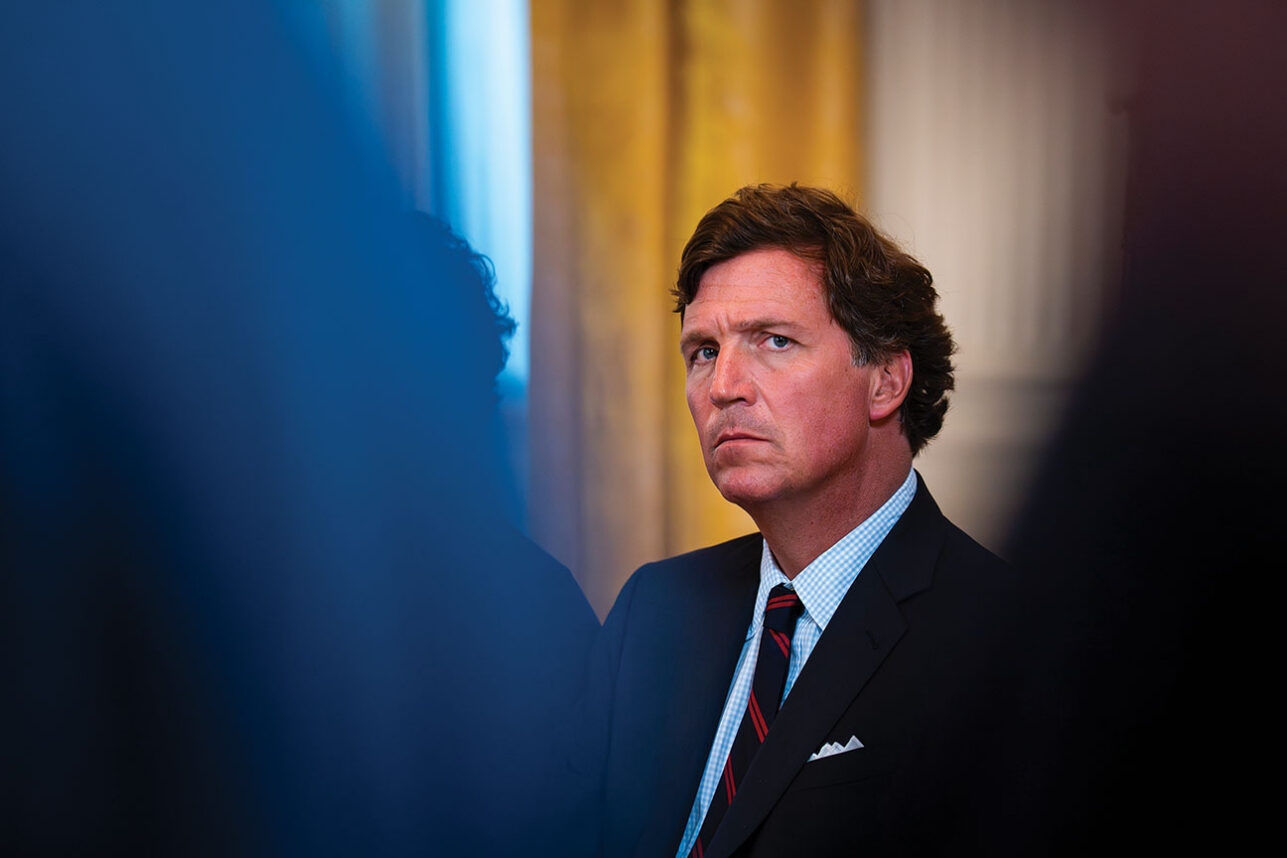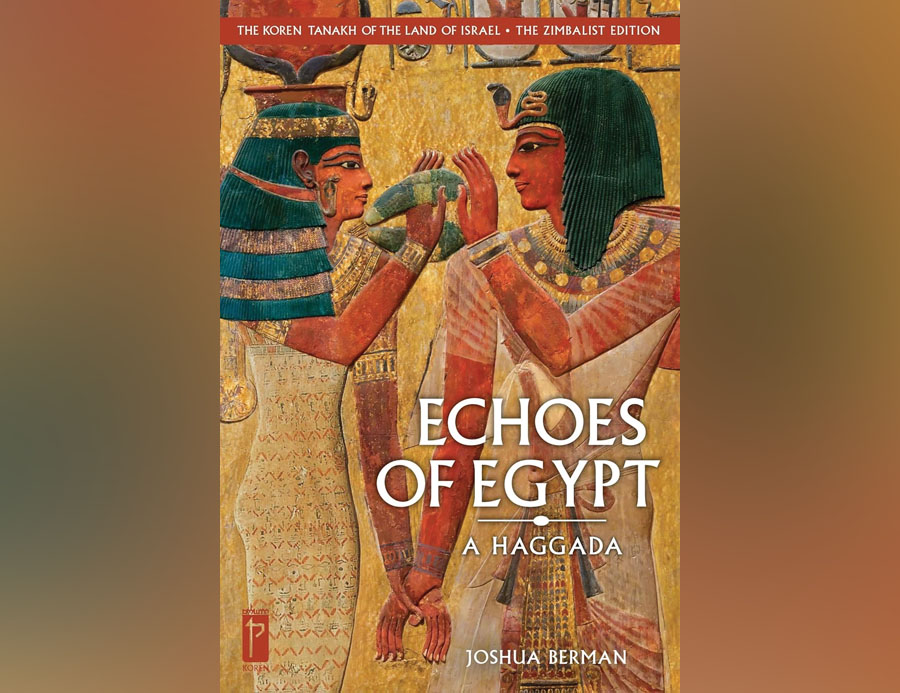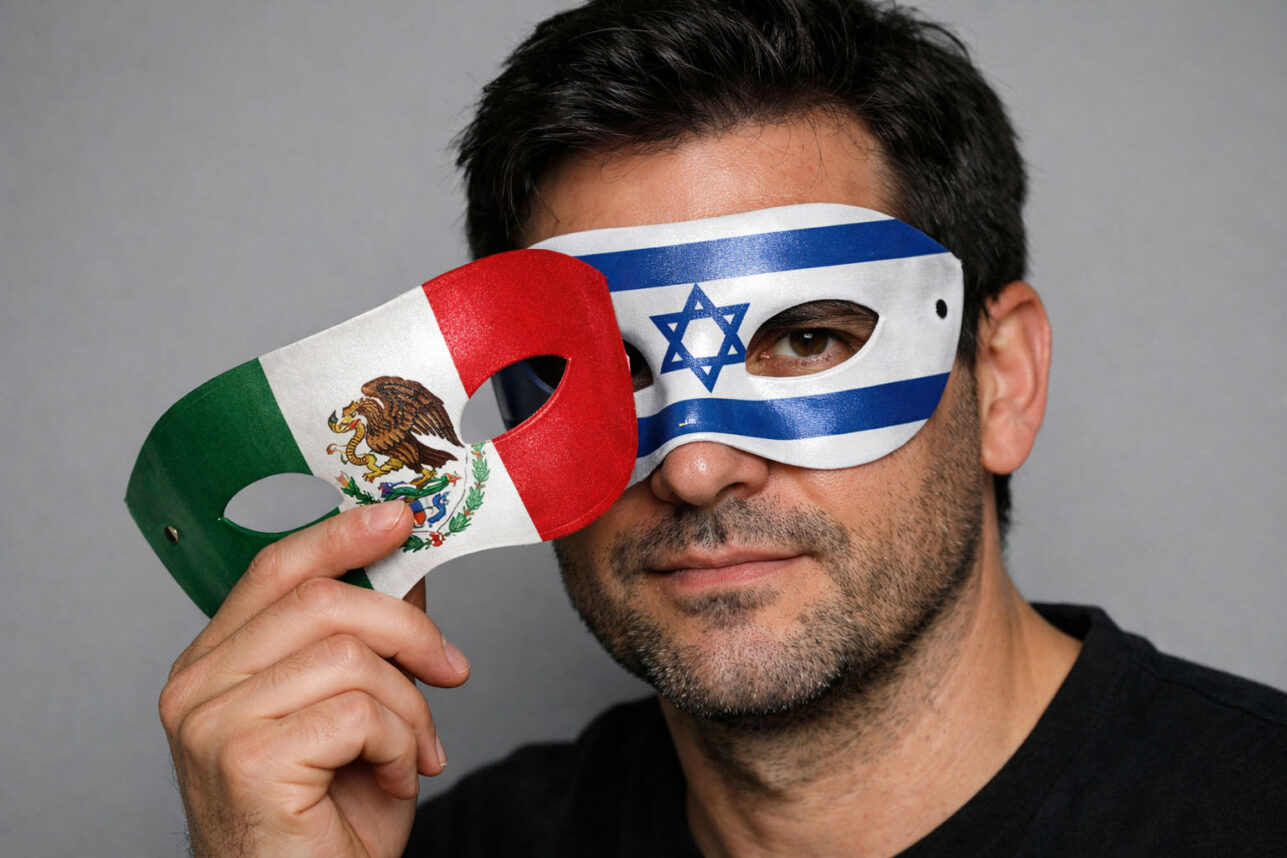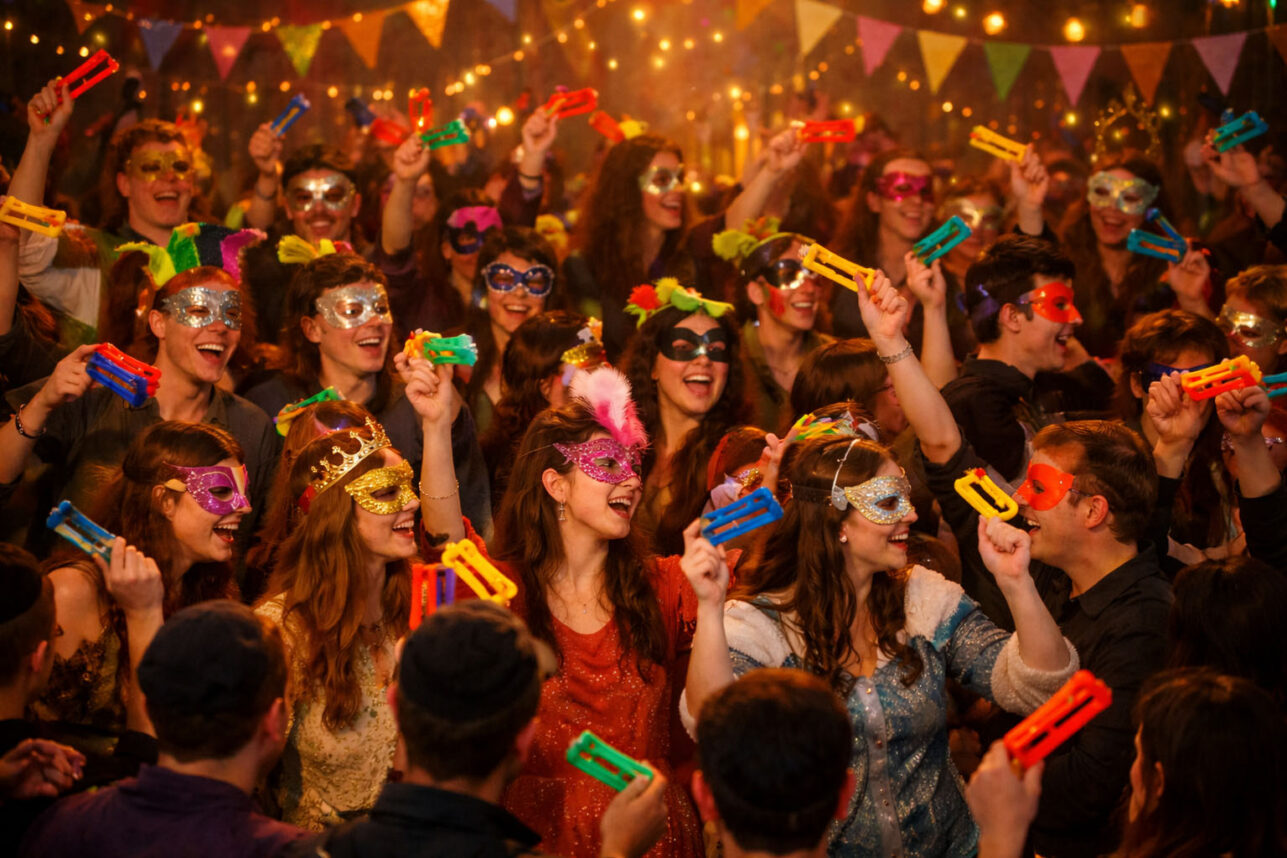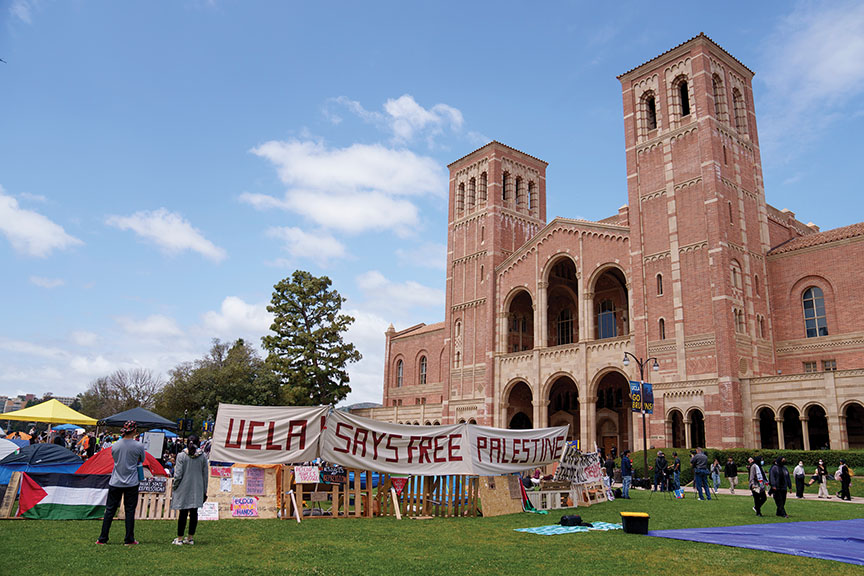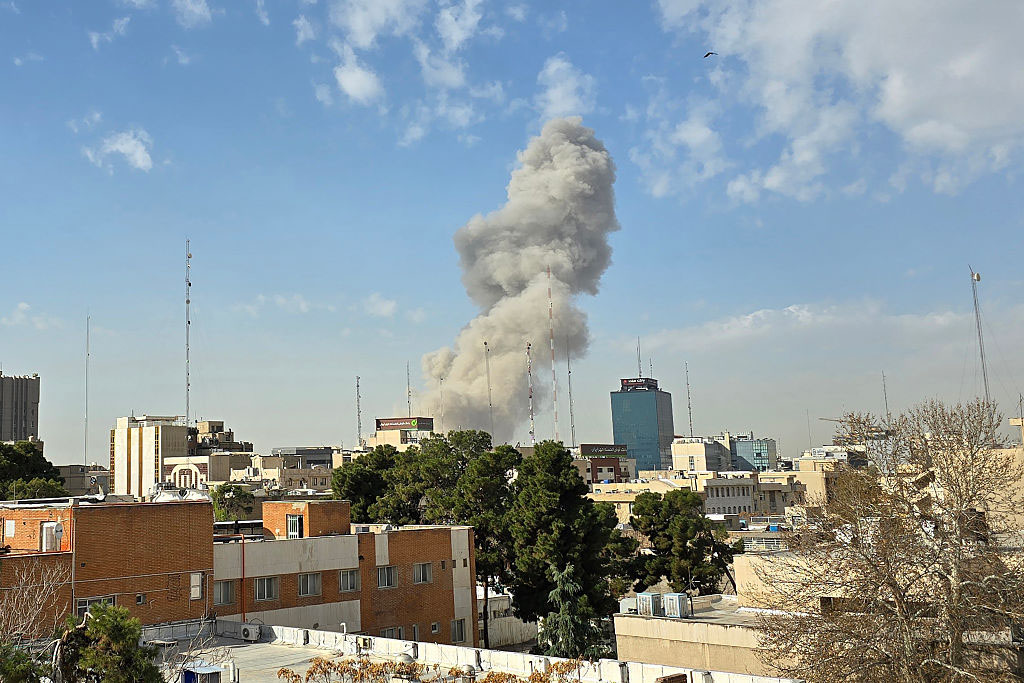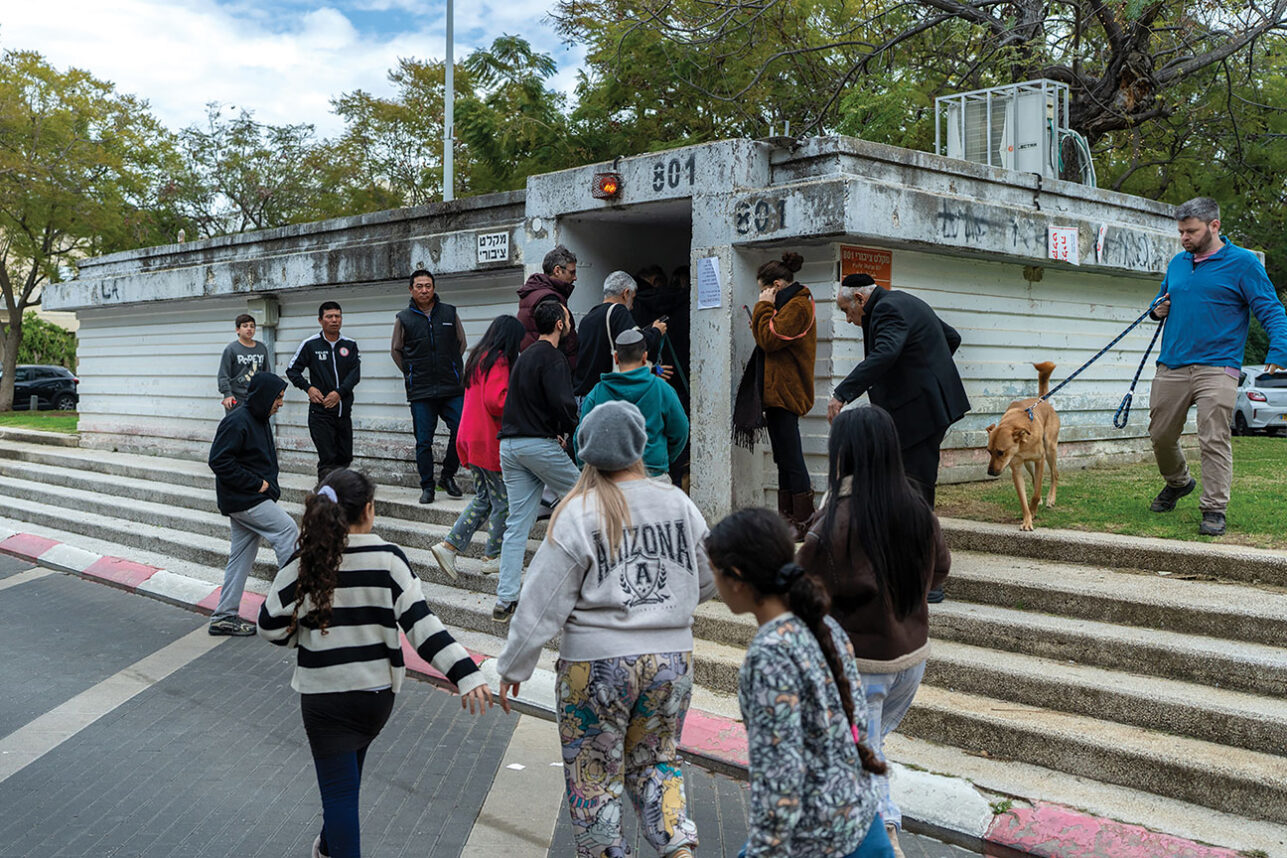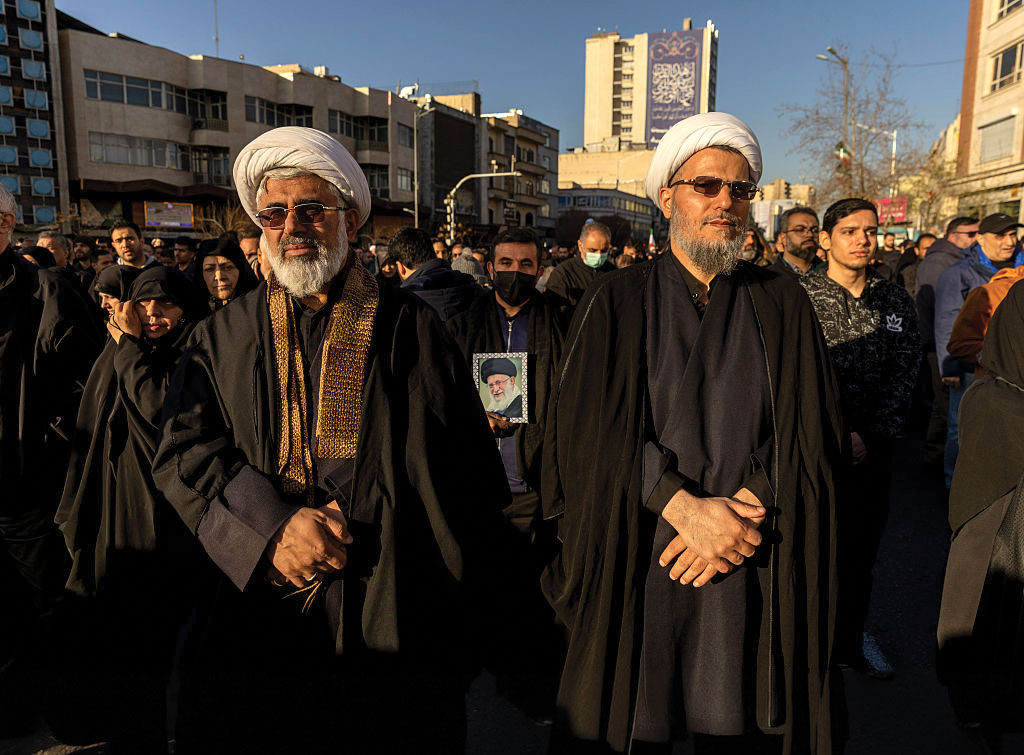‘President Trump.’ It’s still, for many, an incredulous combination of words.
The specter of a transition from President Obama to President Trump is scarcely imaginable, even now, nearly two months after Trump’s victory. It is inconceivable that a person who rendered truth an irrelevant yardstick by which to measure personal character or qualification for office will soon assume the office of President. His inflammatory rhetoric toward or about Muslims, Mexicans, women, and those with disabilities, will now be the preamble to a refashioning of the United States’ highest office. During this liminal period between the election and the inauguration, President-elect Trump’s tweets and cabinet appointments have only reinforced the sense of disbelief and anxiety regarding the next four years.
This period of limbo has been especially trying for Jews, the vast majority of whom did not support him. Even more, mainstream Jewish organizations have had to ask themselves how to position themselves toward the person who will, after all, soon be President of their country. The very need to enter this complicated morass of balancing between moral commitments and political necessity in dealing with such basic questions as to whether or not to invite the President-elect’s senior advisor Stephen Bannon to a ZOA event, or whether or not to hold the Conference of Presidents Hanukkah party at the new Trump Hotel within sight of the White House – offers an alarmingly clear indication that United States Jews find themselves in a moment of profound, and I would assert, unprecedented significance.
But part of the reckoning of the morning of November 9 involves the shocking realization – or perhaps, admission – that nothing “happened” the night before. The outcome of the elections was profoundly unsettling, because it reflected, not effectuated (though it may well do that, too). That is, Trump’s victory offers a surface indicator of the movement of tectonic plates below. Although sensitive pundits knew enough on the morning after to identify what Peter Beinart called “political vertigo,” the time has come to begin an accounting of the significance of Trump’s victory from a Jewish perspective.
I offer these reflections as a Jew who was blessed to grow up in the United States but who decided, as a young adult, to make my home in Israel. Since moving to Jerusalem in 1992, Israel has so much been my center of gravity that I have deemed it inappropriate to vote in the United States elections. Since I do not live there, I reasoned, my political proclivities should not hold sway, even if the law grants me the right to vote. This year’s presidential election, however, was different, as I considered the issue at stake not one of policy but of the danger that Trump presented – as a candidate, as a social phenomenon, and as potential President. But long before November 9, I was keenly aware that United States Jewry was finding itself in a watershed moment. I hope that perhaps my love for and appreciation of the American Jewry, combined with my distance from it, will allow my words to penetrate the heart and the mind of the reader.
Never Better
At the heart of the American Jewish ethos and consciousness is the conviction that Jews have never had it so good – anywhere, at any time, in our very long history of wandering. Never have the Jews been afforded such amazing opportunities to thrive societally and financially as individuals, while contributing vitally to the well-being and fashioning of their host society. Never before have Jews arrived at the highest echelons of society and inhabited the most powerful positions of influence: Presidents of Ivy League schools and prominent academics in nearly every discipline, key players in major industries such as finance and film, justices on the Supreme Court, Chair of the Federal Reserve, Vice Presidential candidate, fashioners of culture and art – in music, literature, and the visual arts, key cabinet positions, prominent journalists in the printed and electronic media. The list is astounding.
But the measure of the sui generis nature of the American Jewish experience is not merely a function of the integration of Jews, qua individuals, into society. Jewish life itself has, according to this narrative, thrived in a way never experienced before. Never has the organized Jewish community achieved such political influence; never have there been Jewish initiatives and experimentations of such diverse and bold nature. Never have so many non-Jews found interest in, and express the desire to participate in, Jewish ritual and Jewish life. Never have Jews been as sought-after as life partners by non-Jews. Never has it been so easy for Jews to integrate their sense of Jewish self and their sense of civic self.
The ease of this integration, I would argue, is a function of the confluence among Jewish and American aspirational ideals, to the extent that many American Jews view them not just as confluent, but as coterminous. The American aspiration for social justice parallels the Jewish pursuit of tikkun olam; human dignity, on one hand, and b’tselem, being created in the Divine image, on the other. One culture places the central text of the Constitution at its legal and moral core, while Jewish tradition does the same with the Torah. And both societies build upon that central text a rich, rigorous, interpretive tradition that develops and extends its reach.
U.S. currency is imprinted with the ideal e pluribus unum, while the literature of the High Holidays is punctuated time and again with the vision that, “my house will be a house of prayer for all peoples” (Isaiah 56 7). What in American culture is cast as a deep belief in the possibility of moral progress is, in Jewish parlance, the central category of redemption – a deep-seated commitment that good can eclipse evil in this world.
A Brave, New World of Hybridity
These last two points have emerged as forged together at their deepest levels in an important way for many American Jews. For them, the greatest and deepest aspirational truth of the United States is that it is constantly progressing toward the formation of an unprecedented model society that expresses the great oneness which undergirds all of humanity. Precisely here, the United States and the Jews combine efforts to form a joint City-on-the-Hill and Light-unto-the-Nations.
Though its early history may be marked by cruel treatment of Native Americans and slaves from Africa, post-Civil War United States freed its slaves and eventually granted suffrage to women and civil rights to all of its citizens. By this account, the United States was still a white, Christian society, but one that tolerated minorities of diverse persuasions.
The melting pot ideal that would emerge entailed the absorption of diverse communities and ethnicities which would blend together, losing a bit of their distinctiveness but – as a part of the process – transforming hegemonic society. At some point, however, the United States progressed toward a more robust model of a pluralism, rejecting the ideal of a melting pot, instead fashioning itself a multicultural society committed to preserving pockets of diversity.
Most recently, it has taken the next step of post-ethnic hybridity, where each of these cultural-ethnic pockets opens its borders, spawning new fusions and iterations of existent cultural, ethnic, and religious life. Each particularity – exposed, as it is, to other cultures and ethnicities – undergoes numerous transformations, evolving constantly into new forms, while society as a whole achieves new heights of oneness.
The aspiration and the promise of the United States allow for a peculiarly American iteration of Jewish life that accentuates a quasi-messianic ideal, according to which the loftiest aspirations of the United States join with those of the Jewish tradition – of human dignity, of shared humanity, and of the deep-rooted belief that these ideals can receive expression and realization in our reality.
The United States has thus offered a double promise of Jewish fulfillment: as individuals, to be sure, but also as Jews, as carriers and fulfillers of the deepest ideals of their country.
The Cracks
“There’s a crack in everything. That’s how the light gets in,” Leonard Cohen famously wrote. With these words, Cohen, for many a kind of post-modern priest, captures a Jewish – and a specifically American Jewish – sensibility of redemptive possibility. The fissures of brokenness in this world are nothing less than openings through which light – the tender, ambient glow of the potential goodness in this world that inheres just below its rough, fractured surface – can pour in. For Jews in the pre-Trump United States, I would assert, the cracks in the veneer of American society were the cracks of which Cohen sings.
Cohen the poet is right. But poetry and politics all too often ignore each other, each disparaging each other’s blindness, and there is a political truth that Cohen neglects to mention.
There’s a different kind of crack in everything – one that opens to an unfathomable depth of darkness.
From our everyday experience, we learn that staring too intently at light prevents our eyes from adjusting to darkness and being able to see in it. The anxiety of post-November 9 results from extreme vulnerability during those critical moments when our eyes must readjust to the muted light of the room into which we are thrust.
Obviously, the United States of 2016 is not Weimar Germany of 1932, and Trump is no Hitler. But it is undeniably the case that German Jews spoke of their place in Germany in glowing terms that echo, nearly precisely, the sensibility of Jews of the United States. Herman Cohen’s “Germanness and Jewishness” argued, in philosophical terms, for the shared pursuit of those two great cultures. German Jewish intellectuals, tycoons, and artists were no less sanguine: never had there been a place better for the Jews, and never had there been such a deep harmony between Jews and their host country. They were right: Karl Marx, Sigmund Freud, Herman Cohen, Heinrich Heine, Moses Mendelssohn, Albert Einstein, Martin Buber, Hannah Arendt…the list goes on. “The pity of it all,” as Amos Elon termed it, entailed not only the full-scale liquidation of the Jews of Germany, but also the annihilation of the German-Jewish symbiosis.
Even more pitiful than this “pity of it all,” was the inability of German Jews to look clearly and honestly at the cracks through which the darkness poured in. As Thomas Kuhn describes so cogently in The Structure of Scientific Revolutions, what characterizes the period leading up to a paradigm shift is the amassing of enough “anomalous” data that does not fit neatly into our current understanding of reality. Time and again, Jews have learned that it is not merely political folly or bad science to ignore such anomalies: it is supremely dangerous.
I cannot imagine that, even with all of Trump’s incendiary rhetoric, we will find the United States engaging in full-scale deportation of all illegal immigrants, blocking entry of Muslims, or forcing Muslims to register. Nor will the scattered swastikas or the virulent anti-Semitic trolling lead to death camps.
But it is an undeniable truth that approximately 50 percent of the electorate in the United States was able to ignore Trump’s vile suggestions and his rhetoric of hatred, dismissing the waves of racism, xenophobia, and anti-Semitism that it released – and deciding, despite it all, to cast a ballot for Donald J. Trump to be the President of the United States of America.
And so the Jews of the United States must, after November 9, give an honest accounting, peering actively into the cracks in the thick veneer of the United States, and its own communal institutions and self-conceptions.
What if the United States as a society contains in its depths silos of incorrigible hatred, not just toward African Americans, which continues to be painfully present and visible, but also toward others qua others? What if those others, exposed to hatred, could include us, as Jewish individuals and as a Jewish community? What if they have repeated what Jews did in the Golden Age of Spain and in Weimar Germany in convincing themselves that it was a host country in which Jews could truly – for the first time in Jewish history – achieve full and total acceptance? What if the effort to limit and sometimes deny Jewish distinctiveness was motivated by a desire to lower any barriers that would divide between them and a post-ethnic, post-tribal host society?
What if they ignored anti-Semitism on the left, often joining in its acerbic critique of Zionism, viewing it as an unseemly outpost of tribal, ethnic Judaism? What if they ignored anti-Semitism on the right, forging partnerships with Christian fundamentalists and other “friends” of the Jews and of Israel, either out of political opportunism or, perhaps worse, out of a deep-seated relief that someone is able to accept and even admire otherness, daring to call Jews what they refuse to call themselves, chosen?
What if, at this very moment, as backward and reactionary as it makes them feel to even entertain the thought, they find ourselves, once again, alone, eclipsed by hatred of Jews both from the left and the right?
What if everything Jews have accomplished in the United States, as committed members of a host society, as individual Jews, and as a Jewish community, were to be bracketed – placed in parentheses within the context of the history of the United States and, as such, marked as other?
(((Mark Rothko. Leon Wieselthier. Janet Yellen. Bob Dylan. Peter Beinart. Ira Glass. Roger Cohen. Jack Lew. Jon Stewart. Ruth Bader Ginsburg. Jeffrey Goldberg. Phillip Roth. Natalie Portman. George Soros. Steve Mnuchin. Paul Auster. Lawrence Summers, Amy Guttman, Neil Rudenstine, Harold Shapiro, Peter Salovey. Steven Spielberg.)))
Waking from Slumber
“When God returned the captives to Zion, we were as dreamers,” writes the Psalmist (Psalms 126:1). Though the modern State of Israel adopted Hatikva (literally, “The Hope”) as its national anthem, these words captured the spirit of modern Zionism: there was a sense, throughout the years leading up to the founding of the State, and in fact, well beyond it, that the Jews were living out a dream and in a certain sense, living in a dream.
At the same time, the Jews of the United States – the Goldene Medina – were no less than those of Israel, living as dreamers.
The past 20 years, however, have seen a shift, as the Zionist enterprise seems to have lost its moral luster, with Israel increasingly seen not only as political aggressor, but at a deeper level, as the expression of and contributor to an outdated, bigoted, tribal Jewish self-understanding. At the same time, the Jews of the United States have more than ever, felt themselves to be living as dreamers.
Dreams are an integral activity during our sleep, and our waking “dreams” are acts of imagination vital to our spiritual and moral well-being. But sometimes when we slumber we are overcome by nightmares, moments when what receives expression are our fears, an immersion in a world of fantasy not necessarily any more delusional than that of our dreams. Our daytime “nightmares” are acts of imagination equally vital to our political well-being and our physical survival.
Trump’s ascendance to power does not alter the supreme importance of simultaneously engaging in the acts of fostering our dreams and of allowing our nightmares to surface. We must continue to let the light in through the cracks, while being mindful of those cracks that open up to reveal a threatening darkness.
A loud alarm clock rang on November 9, waking us from a long slumber, requiring that we engage in each of these modes with heightened awareness.
Leon Wiener Dow is a research fellow and a faculty member of the Shalom Hartman Institute and teaches at Bina's Secular Yeshiva. He lives in Jerusalem with his wife and their five children.









